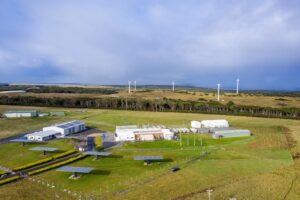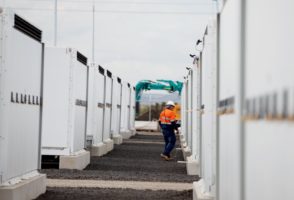The International Energy Agency has warned against a rush to cut research and development funding for clean energy technologies, saying that continued innovation in renewable energy and energy storage technologies is essential if the world is to successfully tackle the long-term threat of global warming.
According to a new report released by the International Energy Agency, continued support for clean technology research and innovation is critical to ensuring the world is in a position to reach its zero emissions carbon targets.
The report comes as the future of the Australian Renewable Energy Agency remains uncertain, with it due to run out of funds shortly, and after cuts to the CSIRO energy team, and the removal of funding for the Energy Transition Hub at the Melbourne University.
The IEA argues that the Covid-19 pandemic presents an opportunity to accelerate the transition away from carbon-heavy industries by directing stimulus support to allow industries to re-tool and improve the sustainability of their operations. However, the IEA warns that if governments pull back support for the clean energy transition, it could cripple clean tech innovation.
“The world’s capacity to bring new technologies to market will be weaker as a result of the disruptions caused by the pandemic. Market and policy uncertainties threaten to reduce the funds available to entrepreneurs,” the IEA’s report says.
“It is important to maintain research and development funding at planned levels through 2025 and to consider raising it in strategic areas. Market-based policies and funding can help scale up value chains for small, modular technologies – as they did for solar panels – significantly advancing technology progress.”
The report details how the energy sector will require new innovations becoming more mature and commercially viable over the next few decades to achieve sustained cuts to global emissions. This will include further advances to battery storage technologies, hydrogen production and use technologies, as well as ongoing cuts to the cost of wind and solar generation.
“This report examines how quickly energy innovation would have to move forward to bring all parts of the economy – including challenging sectors like long-distance transport and heavy industry – to net-zero emissions by 2050 without drastic changes to how we go about our lives,” IEA executive director Dr Fatih Birol said.
“This analysis shows that getting there would hinge on technologies that have not yet even reached the market today. The message is very clear: in the absence of much faster clean energy innovation, achieving net-zero goals in 2050 will be all but impossible.”

“A recent IEA survey revealed that companies that are developing net-zero emissions technologies consider it likely that their research and development budgets will be reduced, a clear sign of the damage that the Covid-19 crisis could do to clean energy innovation,” Dr Birol said.
“Now is not the time to weaken support for this essential work. If anything, it is time to strengthen it.”
The threat of cuts to research and development funding is a present threat in Australia, a major source of researching funding, the Australian Renewable Energy Agency, reaching the end of its budget for grant support.
Late last year, ARENA CEO Darren Miller told a senate estimates hearing that ARENA had approximately $200 million in unallocated funding, but since that time, the agency established the $70 million Renewable Hydrogen Deployment Funding Round, as well as continuing to fund new research and demonstration projects. No new funding will be allocated to ARENA beyond the next financial year.
With the help of ARENA funding, Australian research institutions, including the University of New South Wales, the Australian National University and the CSIRO have been able to establish themselves as leaders in clean tech research, particularly solar technologies, but this may come to a halt without additional funding.
It is understood that the Morrison cabinet is actively considering a proposal to extend the funding allocation for ARENA, but this may come paired with an expansion of ARENA’s funding mandate to include support for carbon capture and storage projects, and other projects outside of the renewable energy sector.
The CSIRO was also forced to shed 40 within its energy research divisions following funding cuts, that saw staff stood down across three of the CSIRO’s research labs. The moved was slammed by public service union the CPSU, which said it feared that further cuts could be made in a federal budget to be handed down in October.
In May, the Morrison government released a discussion paper for its technology investment roadmap, which will draw upon funding to be allocated to a new Grid Reliability Fund, but legislation necessary to establish the fund has not yet been introduced into parliament.






